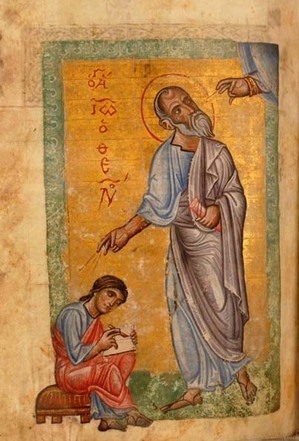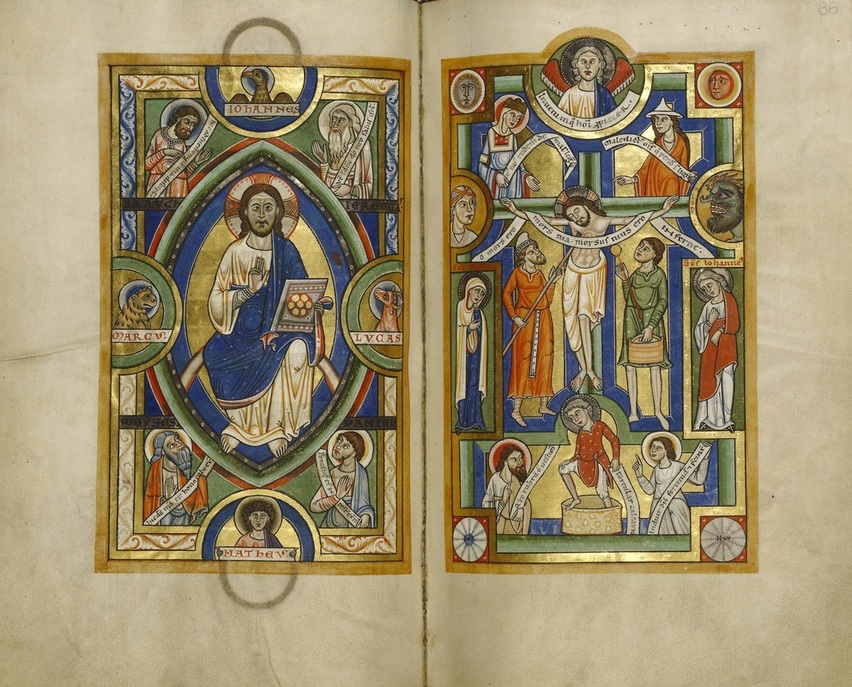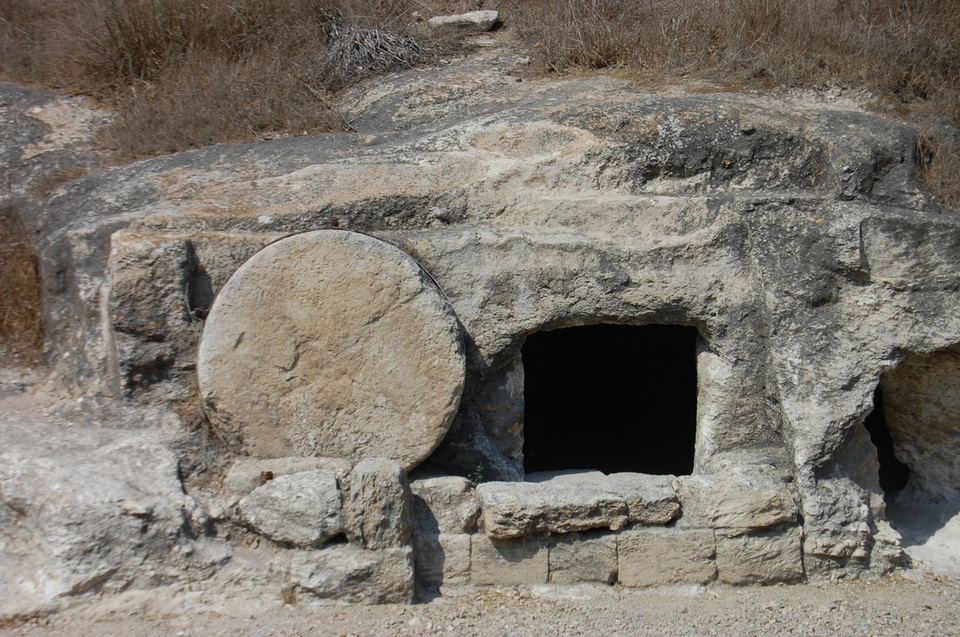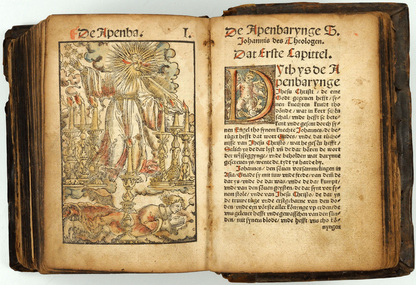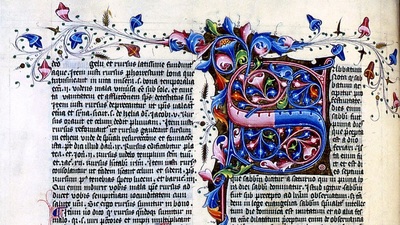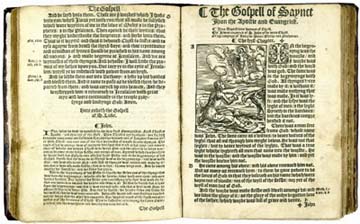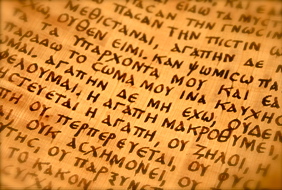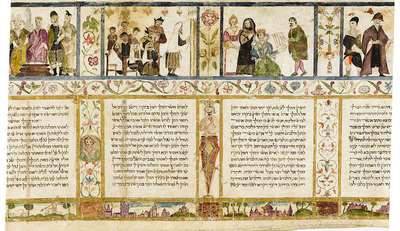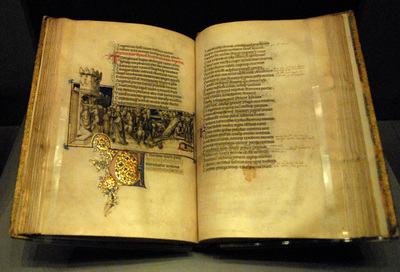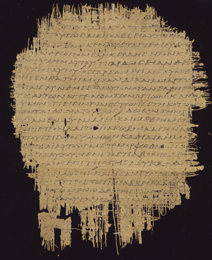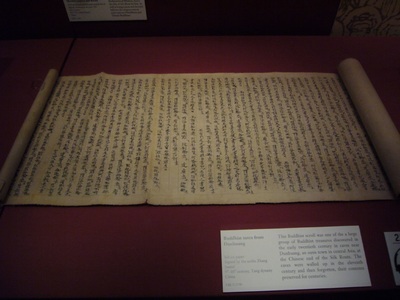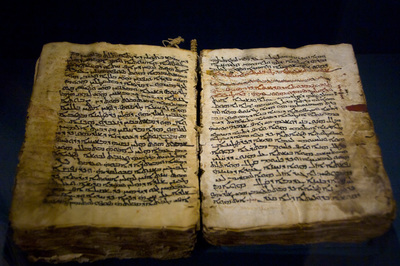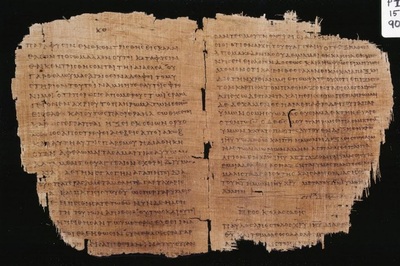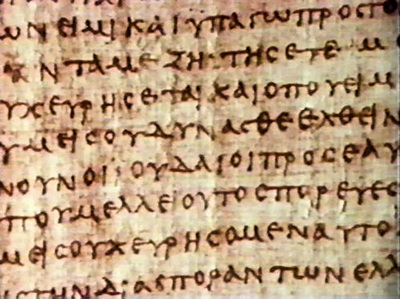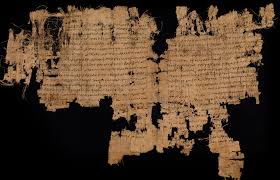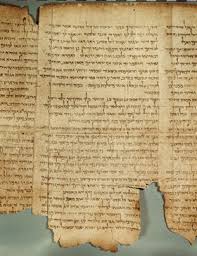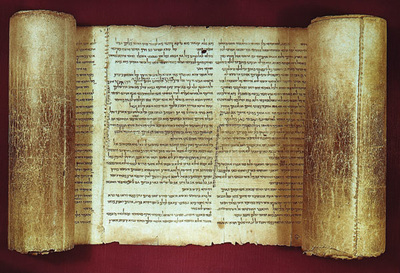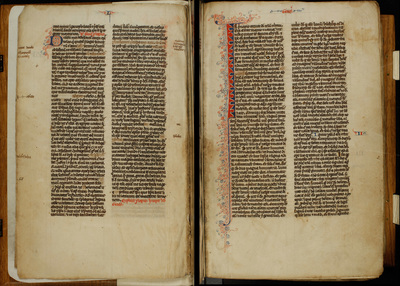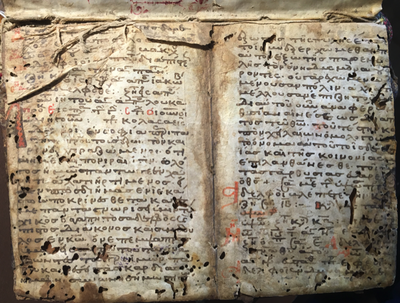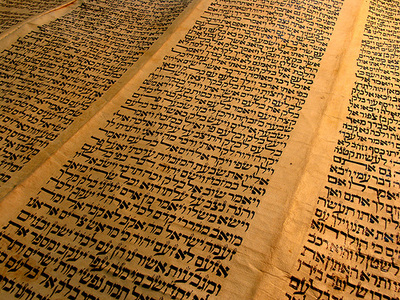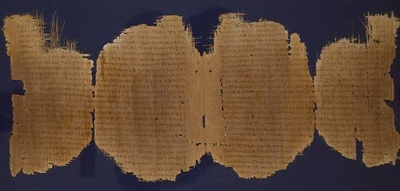Our Sacred Texts
Pictured Above:
The scroll of the Book of the Prophet Isaiah
Dead Sea Scrolls, Qumran
circa 200 A. D.
What Is Scripture?
Scripture is the human attempt to narrate the experience of God's self-revelation.
|
For Christians, the narratives of the Hebrew people, Jesus of Nazareth, and the early Church comprise an anthology of texts which we accept as the authoritative basis for the discovery of the Living God in our own time and place. This does not mean that every word of these texts was dictated to the authors by God: the scene depicted here as the Apostle Paul receives his letters word for word. Rather, we acknowledge that the fullness of God's Being and Eternal Life remains a Mystery beyond the limits of our comprehension and language. We can only know God when God enters into our lived experience. Scripture gives us the insight to recognize God's presence and power.
|
The Scriptures become authoritative in every era of human history inasmuch as the author(s) of each text convey the hallmarks of what it is like to be with God. As Paul tells the Galatian church: "the fruit of the Spirit is love, joy, peace, patience, kindness, generosity, faithfulness, gentleness, and self-control" (5:22-23). The Spirit of the Living God is understood to be present and at work when love triumphs over hate; kindness over cruelty; self-control over self-gratification; peace over war; et cetera. For Christians, these triumphs are not human achievements, but gifts of God's life-giving grace. And for Christians, we see these triumphs confirmed most clearly in the birth, life, death, and resurrection of Jesus Christ.
|
At the center of Christian Scripture are the "Gospels" – or, stories of Good News – which narrate the crucifixion and resurrection of Jesus of Nazareth. Indeed, the entire New Testament is composed to explain this event in the history of creation: an event that redirects the unfolding history of the Cosmos away from the nothingness of Death toward the fullness of God's Eternal Life. The Christian story is the story of the empty tomb.
What gives this story credibility is not the kind of forensic proof we might think of as evidence today. Rather, it is the question of existence itself that draws our attention to the biblical account of the Resurrection of the Crucified Jesus. The question of the Resurrection is the question of God. Is the Universe an expanse of random stuff? If so, what are its origins? Science may be able to tell us how life happens, but it can never tells us from where life comes. If the Universe is a Creation, then there is a Creator. While we don't understand the Book of Genesis as a scientific document, the scriptures narrate the relationship between Creator and Creation, a relationship that has the event of the Cross and Empty Tomb as its focal point.
In relationship to the ancient Hebrew scriptures, this event is understood as the beginning of the final fulfillment of Creator's desire to bless the creation with being and purpose. Simply, the scriptures narrate the promises and faithful actions of the God of Abraham, who seeks the life of the world in order to be in relationship with the world. The scriptures are true not in a legal or even historical sense, necessarily, though history is undoubtedly told in these pages. The scriptures are true in the sense that their stories mesh and meld with the stories of our own lives in ways that reveal God's ongoing self-revelation; God's ongoing presence and love.
In relationship to the ancient Hebrew scriptures, this event is understood as the beginning of the final fulfillment of Creator's desire to bless the creation with being and purpose. Simply, the scriptures narrate the promises and faithful actions of the God of Abraham, who seeks the life of the world in order to be in relationship with the world. The scriptures are true not in a legal or even historical sense, necessarily, though history is undoubtedly told in these pages. The scriptures are true in the sense that their stories mesh and meld with the stories of our own lives in ways that reveal God's ongoing self-revelation; God's ongoing presence and love.
Daniel Migliore, Professor Emeritus of Theology at Princeton Theological Seminary, explains:
|
"To read the bible historically in the deepest sense is to read it with an eye to the extension of its story of God’s liberating activity in Christ into our own time and beyond. We must ask of Scripture not only what past it calls us to remember, but also what promises it wants us to claim here and now, and what future it wants us to pray and work for…To read Scripture historically is to read it both critically and with sensitivity to the direction in which it moves, rather than with nostalgia for biblical times...We interpret Scripture in the spirit of the scriptural writers themselves when we search not for the ‘last word’ but for the ‘living word.'"
|
|
Above: Martin Luther's German translation of the Scriptures (16th Century).
|
Faith Seeking Understanding
Eerdmans, 2004, page 50 |
This prayerful searching for the Living Word between the lines of the penned and printed words is one of the central practices of the church; a practice to which we hold lest we forget to hope.
